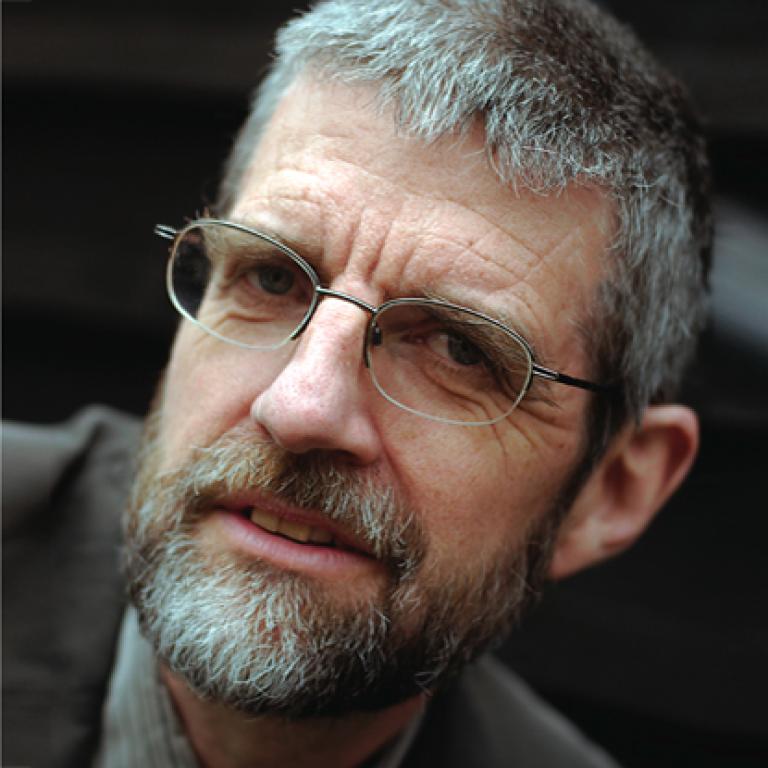
Born in Cornwall, son of an Estonian wartime refugee, Philip Gross has lived in Plymouth, Bristol and South Wales, where he was Professor of Creative Writing at Glamorgan University (USW). His 28th book of poetry, The Shores of Vaikus, was published by Bloodaxe in 2024. His previous collection, The Thirteenth Angel (2022), was a Poetry Book Society Recommendation, and was shortlisted for the T.S. Eliot Prize 2022. That followed eleven previous books with Bloodaxe, including Between the Islands (2020), A Bright Acoustic (2017), Love Songs of Carbon (2015), winner of the Roland Mathias Poetry Award and a Poetry Book Society Recommendation; Deep Field (2011), a Poetry Book Society Recommendation; The Water Table (2009), winner of the T.S. Eliot Prize 2009; and Changes of Address: Poems 1980-1998 (2001), his selection from earlier books including The Ice Factory, Cat’s Whisker, The Son of the Duke of Nowhere, I.D. and The Wasting Game. Since The Air Mines of Mistila (with Sylvia Kantaris, Bloodaxe Books, 1988), he has been a keen collaborator, most recently with artist Valerie Coffin Price on A Fold in the River (2015), with poet Lesley Saunders on A Part of the Main (2018), and with Welsh-language bardd Cyril Jones on Troeon/Turnings (2021). I Spy Pinhole Eye (Cinnamon Press, 2009), with photographer Simon Denison, won the Wales Book of the Year Award 2010. He received a Cholmondeley Award in 2017.
Philip Gross's poetry for young people includes Manifold Manor, The All-Nite Café (winner of the Signal Award 1994), Off Road to Everywhere (winner of the CLPE Award 2011) and the poetry-science collection Dark Sky Park (shortlisted for the CLiPPA award 2019).
Author photo: Stephen Morris